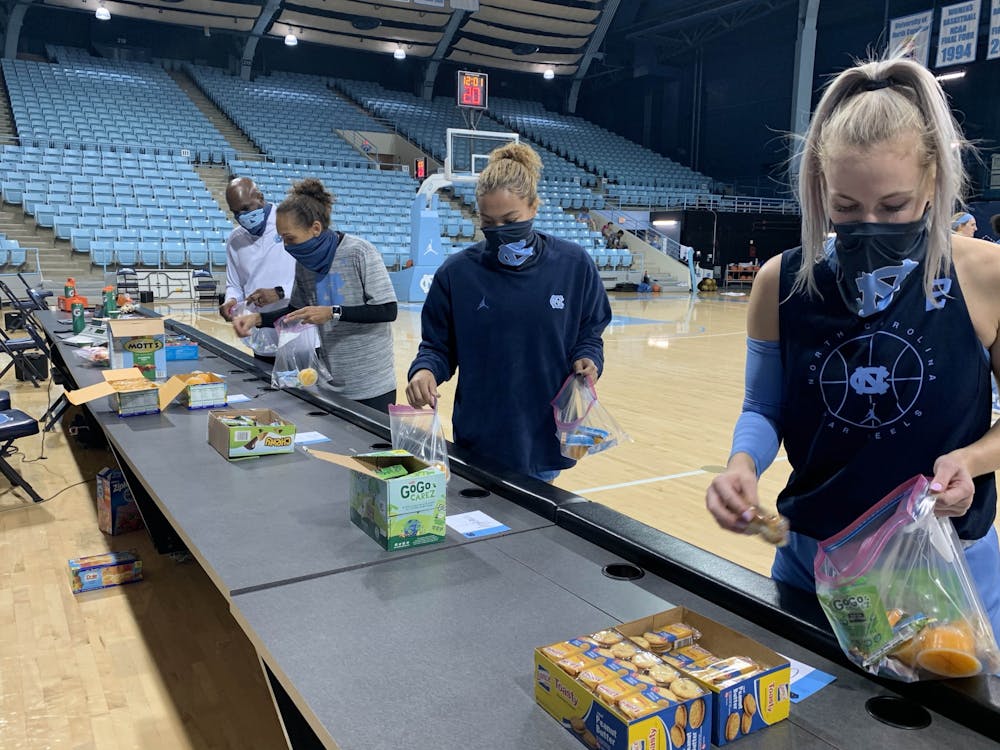The North Carolina women’s basketball team mantra, “Strong on Own, Best Together,” doesn’t just apply on the court. The team has dedicated the 2020-21 season to advocating for and bringing awareness to causes that impact marginalized populations and people in need.
The coaches and administrative staff brainstormed a list of potential causes which they then brought to the players. Each player chose a cause that was meaningful to them and each week the team focused on a different player’s cause.
“We wanted them to think about the two arms, which are educate and activate,” head coach Courtney Banghart said. “Within the one they chose, they educate the team and staff on not only the national implication or the national reality, but also in-state, because we thought it was an important component for them to know what their environment is locally. And the second is activation, which is the opportunity to serve.”
Even with COVID-19 restrictions, the team found ways to serve communities in need. For the week focusing on Down syndrome awareness, the team interacted with the kids at GiGi's Playhouse Raleigh over Zoom. After learning about pediatric cancer, the team visited UNC Children’s Hospital, where the players stood outside and communicated with the children via walkie-talkies.
“We were all standing outside in the parking lot waving at kids, and it was the cutest thing ever,” first-year Alyssa Ustby said. “We had a walkie-talkie, and we were talking to them, and they were asking one of our teammates to dance. (...) It was so cool, you could hear them laughing over the walkie-talkie.”
After working to fight food insecurity in high school, Ustby chose this as her cause. As part of this, the team put together snack bags for TABLE, a local nonprofit that helps fight childhood hunger in Orange County.
“Delivering that food meant so much to the people that we gave it to, and I wanted to bring that same joy to people here, in my new home, Chapel Hill,” Ustby said.
Sophomore Malu Tshitenge, who grew up in Germantown, Maryland, outside of Washington D.C., focused on homelessness as her cause. Tshitenge said growing up in the city opened her eyes to housing insecurity.
"Just seeing homeless people there and being really confused, I’d ask my parents like, ‘What’s going on? Why are these people just out there in the cold? It’s raining out, why aren’t they in their house?'" Tshitenge said. "And they would just kind of break it down and explain it to me. People everywhere are not as fortunate."




